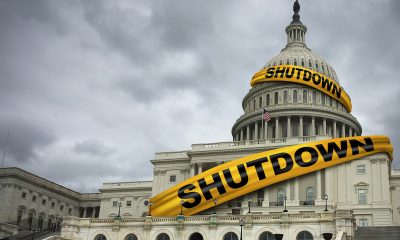Op-Ed
Credit Arbitration Clauses Favor Corporations
By Charlene Crowell
NNPA Columnist
Although arbitration is often associated with labor unions, millions of consumers are also affected by it and don’t even know it. Often consumers find the extremely small print of credit agreements difficult to read. Others become bewildered by the legal jargon embedded in these clauses.
In either case, consumers should take note. The adage, ‘the devil is in the details’ still holds true.
A new report released by the Consumer Financial Protection Bureau (CFPB) found that more than three in four consumers surveyed did not know whether they were subject to a credit arbitration clause. Checking accounts, credit cards, mobile wireless providers, payday loans and prepaid cards were the six financial areas that CFPB analyzed.
Even worse, CFPB determined that despite arbitration clauses dominant presence in consumer credit agreements, the clauses work more in favor of corporations than consumers. All too often, credit terms are seldom negotiable. Only in a few instances are consumers given a one-time chance to opt out of these terms. Additionally, when disputes arise, consumers seldom choose the arbitrator and creditors typically pay for arbitration services.
As consumers accept credit terms, they often forfeit their rights to legal action as an individual or as part of a class action. In short, from a consumer perspective the choice becomes ‘take it or leave it’.
“Tens of millions of consumers are covered by arbitration clauses, but few know about them or understand their impact,” said Richard Cordray, CFPB Director. “Our study found that these arbitration clauses restrict consumer relief in disputes with financial companies by limiting class actions that provide millions of dollars in redress each year.”
In reaction to CFPB’s new report, business lobbyists and organizations spoke up on how arbitration remains a cost-saving tool and as a result, helps to preserve affordability in financial services.
Yet many consumer advocates held a near-opposite view.
“Forced arbitration isn’t an alternative forum for resolving disputes; it’s a get-out-of-jail-free card for corporations,” said Ellen Taverna, legislative director of the National Association of Consumer Advocates.
“The findings of the CFPB study are crystal clear,” said David Seligman, an attorney with the National Consumer Law Center. “These clauses are written by corporations to set up a secret and lawless process that prevents consumers from holding corporations accountable for unlawful conduct.”
Over a five-year period, CFPB analyzed evidence from consumer contracts, court data, surveys and more to determine whether arbitration clauses offered a fair and transparent resolution of consumer complaints in six consumer financial markets. The findings were as eye-opening as they were broad in impact.
Payday loans and prepaid cards were found to have the highest usage of arbitration clauses, at 99 and 92 percent, respectively. It should be noted that in California and in Texas, two states with some of the highest numbers of payday stores, CFPB obtained data on more than 99 percent of store locations.
The remaining credit areas studied still made significant use of arbitration agreements: mobile wireless (88 percent), private student loans (86 percent), credit cards (53 percent) and checking accounts (44 percent).
Other CFPB findings include:
• Over the five years studied, 1,847 arbitration disputes were filed but the total amount of relief and debt forbearance that consumers received was less than $400,000;
• Corporations obtained decisions that required consumers to pay $2.8 million, largely for disputed debts during the same period;
• Nearly 34 million consumers could have been eligible for at least $1.1 billion in cash payments; and
• At the same time, among those not affected by forced arbitration clauses, at least 160 million class action members, were eligible for $2.7 billion in cash, in-kind relief, expenses and fees through federal legal proceedings.
“Companies claim that arbitration is simpler, easier, and cheaper – but they fail to mention that forced arbitration rarely provides the impartiality or meaningful review that a consumer can get in a court of law,” says Mitria Wilson, a vice-president with the Center for Responsible Lending.
“In the worst examples, we’ve seen consumers being asked to travel to faraway places to try to enforce their rights only to find out that the ‘impartial’ arbiters were selected exclusively by the companies that their dispute is with. These proceedings are virtually impossible to get overturned through a court of law –even if blatant mistakes are made.”
In 2010 and as part of the Dodd-Frank Wall Street Reform Act, Congress directed CFPB to conduct a study and provide a report on the use of pre-dispute arbitration clauses in consumer financial contracts. Dodd-Frank also banned the use of arbitration clauses in most residential mortgage loans. The issue of arbitration’s effects on consumers was also brought before Congress in 2007 when it enacted the Military Lending Act.
“This report is an important one – and we hope it serves as a precursor to a strong and robust rule prohibiting this practice,” concluded Wilson.
Charlene Crowell is a communications manager with the Center for Responsible Lending. She can be reached at Charlene.crowell@responsiblelending.org.
###
Activism
OPINION: Why the N-Word Should Be Eliminated from Schools: A Call to Educators, Parents and Students
The N-word’s use in schools, intentionally or otherwise, preserves a cycle of racial abuse, degradation, and discrimination which are violations to the dignity of African American students. Its usage perpetuates a legacy of hate and is a dignity violation that makes it a pressing issue for educators to address. Not addressing use of the N word in school contradicts the principles of equity and inclusion that educational institutions strive to uphold.
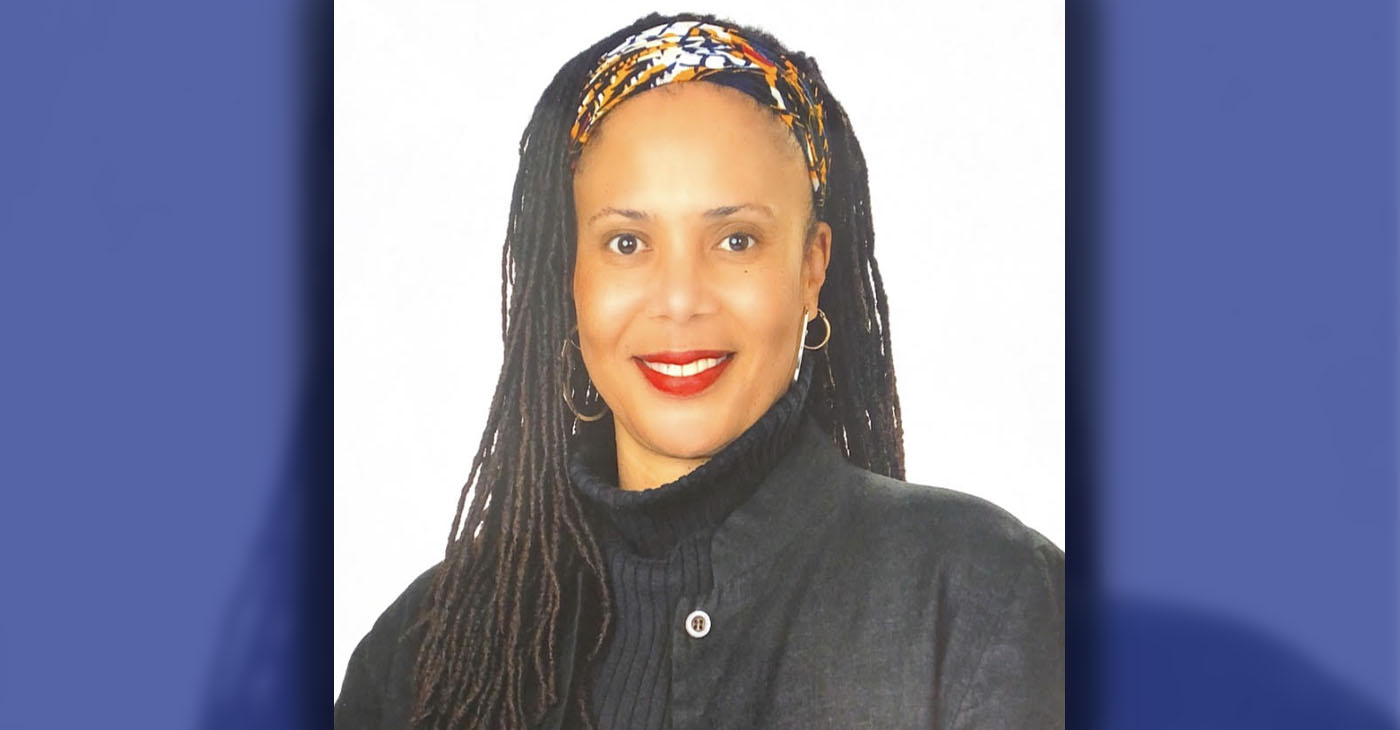
By Zetha A. Nobles,
The presence and rampant use of the N-word in educational settings poses significant challenges to the social-emotional learning (SEL) and psychological well-being of students and teachers.
The historical and contemporary usage of the N-word carries deep-seated racial connotations and trauma, making it imperative to address its impact in the school environment.
Here’s why the N-word should be eradicated from schools and its detrimental effects on SEL and psychological health.
Historical Context and Significance
The use of the N-word is considered a severe violation of dignity due to its deeply hurtful and dehumanizing nature. The N-word is historically rooted in a long and sordid history of racism, oppression and dehumanization.
It was and is used to dehumanize, degrade, demean and denigrate African American people. Its historical presence is marked by extreme violence and pernicious systemic oppression.
Despite the evolving societal appropriation and the exploitation of the word in hip hop music and other media forms, its controversial use has morphed or mutated into a word now used to signify friendship or endearment.
In schools its use is complex, representing camaraderie, being cool and defiant while consciously and unconsciously dehumanizing African American students and staff.
The N-word has a long history of being used as a tool of oppression and degradation against Black people. It was employed during periods of slavery, segregation, and ongoing racial discrimination to strip individuals of their humanity and reinforce systemic racism.
Its use is a painful reminder of this history and the ongoing struggle against racism. Its impact:
- Dehumanization: When the N-word is used, it reduces Black individuals to a derogatory stereotype, stripping away their identity and worth as human beings. It perpetuates the idea that certain groups are inferior and unworthy of respect and dignity.
- Impact on Self-Worth: Hearing or being called the N-word can have profound psychological and emotional impacts, leading to feelings of shame, anger, and diminished self-worth. It communicates to individuals that they are lesser or undeserving solely because of their race.
- Interpersonal Harm: The use of the N-word in interpersonal interactions conveys disrespect, hostility, and a lack of regard for the feelings and dignity of others. It undermines efforts to build inclusive and respectful relationships.
- Symbol of Structural Injustice: The N-word symbolizes larger societal injustices and inequalities. Its continued use reflects ongoing racial prejudice and discrimination, perpetuating harmful attitudes and behaviors.
Given these reasons, using the N-word is not just a matter of inappropriate language; it represents a significant violation of human dignity and reinforces harmful racial stereotypes and hierarchies. It is crucial to reject and actively challenge the use of this word to promote equality, respect, and dignity for all individuals.
In schools, the word retains its harmful and damaging impact and remains a powerful symbol of racial animosity. The N-word’s use in schools, intentionally or otherwise, preserves a cycle of racial abuse, degradation, and discrimination which are violations to the dignity of African American students. Its usage perpetuates a legacy of hate and is a dignity violation that makes it a pressing issue for educators to address. Not addressing use of the N word in school contradicts the principles of equity and inclusion that educational institutions strive to uphold.
Impact on Social-Emotional Learning (SEL)
Social-emotional learning is crucial for students’ development as it encompasses the skills needed to manage emotions, establish positive relationships, and make responsible decisions. The use of the N-word in schools disrupts this process in several key and critical ways:
- Emotional Trauma: The N-word is a trigger for emotional pain, particularly for African American students and teachers. It can evoke feelings of anger, sadness, shame and humiliation, which hinder the ability to engage fully in the learning process.
- Hostile Learning Environment: A safe and supportive learning environment is essential for effective SEL. The use of the N-word creates a hostile and unsafe atmosphere, leading to increased anxiety, disrespect, and stress among students and teachers.
- Relationship Building: One of the goals of SEL is to foster positive relationships. The use of derogatory language such as the N-word fosters division and mistrust among students and staff.
Psychological Impact on Students and Teachers
The psychological effects of the N-word on students and teachers are profound and far-reaching. For students, especially those of African American descent, the word can lead to feelings of inferiority and exclusion. This not only affects their academic performance but also their self-esteem and mental health. Studies have shown that exposure to racial slurs can increase levels of depression, anxiety, and other mental health issues.
For teachers, addressing the use of the N-word in the classroom is a significant challenge. It places an emotional burden on them, particularly for teachers of color who may feel personally targeted. The stress of managing such situations can lead to burnout and affect their ability to provide a supportive learning environment.
Strategies for Eliminating the N-Word from Schools
To effectively eliminate the N-word from schools, a comprehensive approach is necessary. Here are some strategies:
- Clear Policies and Consequences: Schools must implement and enforce policies that explicitly prohibit the use of the N-word and other derogatory language. Clear consequences for violations should be established and communicated to all members of the school community.
- Cultural Competency Training: Providing cultural competency and anti-racism training for teachers, staff, and students can foster a more inclusive and respectful environment. This training should include the historical context of the N-word and its impact on individuals and communities as well as alternative language.
- Support Systems: Schools should offer culturally congruent support systems, such as counseling and peer support groups, for students and teachers affected by the use of the N-word. These resources can help individuals process their experiences, mitigate psychological harm and co-create a culture of dignity.
- Community Engagement: Engaging the broader school community, including parents and local organizations, in dialogue about the impact of the N-word can reinforce the school’s commitment to creating a respectful and inclusive environment.
In addition to the moral and ethical arguments against the use of the N-word, there are also legal and policy considerations that support its prohibition in schools. Many school districts have anti-bullying and anti-discrimination policies that explicitly prohibit the use of derogatory language, including racial slurs. The use of the N-word in schools can lead to disciplinary actions and legal consequences for both students and staff who violate these policies.
Furthermore, federal laws such as Title VI of the Civil Rights Act of 1964 prohibit discrimination on the basis of race, color, or national origin in programs and activities receiving federal financial assistance. Schools that fail to address the use of the N-word and other forms of racial harassment may be in violation of these laws, potentially resulting in investigations and penalties from the U.S. Department of Education’s Office for Civil Rights.
Addressing the N-word in educational settings is not just about prohibiting a word; it is about dismantling a symbol of hate and fostering an environment where all students and teachers can thrive.
Business
Opinion: Black Workers Depend on Same-Day Pay. Why is Gov’t Trying to Restrict It?
It’s no secret that too many Americans are living paycheck to paycheck. What appears to be a secret is that an industry that is casting lifelines to those in need is being blocked by state and federal regulators. The industry in question is Earned Wage Access (EWA). EWA is an innovative fintech solution that empowers workers and helps them pay bills on time by accessing wages they’ve already earned. A 2021 study found that EWA services often prevent consumers from missing bill payments and slipping further into debt.

Jay King, Special to California Black Media Partners
It’s no secret that too many Americans are living paycheck to paycheck. What appears to be a secret is that an industry that is casting lifelines to those in need is being blocked by state and federal regulators.
The industry in question is Earned Wage Access (EWA). EWA is an innovative fintech solution that empowers workers and helps them pay bills on time by accessing wages they’ve already earned. A 2021 study found that EWA services often prevent consumers from missing bill payments and slipping further into debt.
Despite the many benefits and the fact that businesses all across the country, including Paychex, now offer EWA to employees, the Consumer Financial Protection Bureau (CFPB) recently issued guidance that could effectively wipe out this tool and, in the process, let struggling families, already in jeopardy, drown even deeper in debt.
The numbers tell the story. According to a recent study, 66% of Americans report living paycheck to paycheck, while 40% report being unable to afford a $400 emergency expense. They face hardship paying bills, covering financial emergencies, and otherwise making ends meet. These aren’t just workers with minimum-wage jobs either; half of those U.S. consumers facing hardship earn more than $100,000 per year.
This dynamic is especially pernicious in the Black community. According to recent figures, Black Californians currently have the lowest household income of any major racial or ethnic group in the state. Research also indicates that nearly a third of Black families are late paying their debts and 42% use credit cards just for basic living expenses while half do so to send their kids to college.
EWA is ready to support these individuals, yet the CFPB seems to think these services are just loans masquerading as something new. Not only is this wrong, but the agency’s interpretive guidance reverses their previous guidance and contradicts the established language and interpretation of the Truth in Lending Act (TILA).
This change could have a devastating impact on the very people it purports to protect. By categorizing EWA as loans, the CFPB would impose unnecessary regulations that stifle innovation and could drive consumers back toward high-cost payday lenders.
As I mentioned, the numbers tell the story, and EWA has an impressive track record. A recent study from Citizens Bank found that seven in 10 middle-market companies currently offer EWAs to employees, with more planning to do so in years to come. As it happens, few states better illustrate the value, and excellent ROI, of EWAs than California. Californians employed by Walgreens, Home Depot, FedEx Office and other businesses have accessed more than $1.67 billion in wages through EWA. Equally promising, more than half of consumers who tap into EWA can now afford a $400 emergency.
EWA services have always proven to serve the greater good, particularly in supporting underserved communities like the Black community, which is disproportionately affected by financial instability. The CFPB should take advantage of this opportunity to make sure they continue to do so, rather than creating obstacles that could undermine their effectiveness.
I urge the CFPB to rethink this misguided guidance. The agency must prioritize fairness and innovation to protect both consumers and the businesses that employ them.
About the Author
Jay King is CEO of the California Black Chamber of Commerce.
Commentary
Commentary: Kamala’s Convention Is High Energy Show of Unity
“This is going to be a great week,” Vice President Kamala Harris declared in an unexpected early appearance that brought down the house on day one of the Democratic National Convention in Chicago. It was already an emotional night after Jesse Jackson in a wheelchair was brought out in front of the crowd to cheers. The man who ran for president twice in the 80’s behind a rainbow coalition, didn’t speak. But his presence was all that was needed to let us know how far we’ve come.
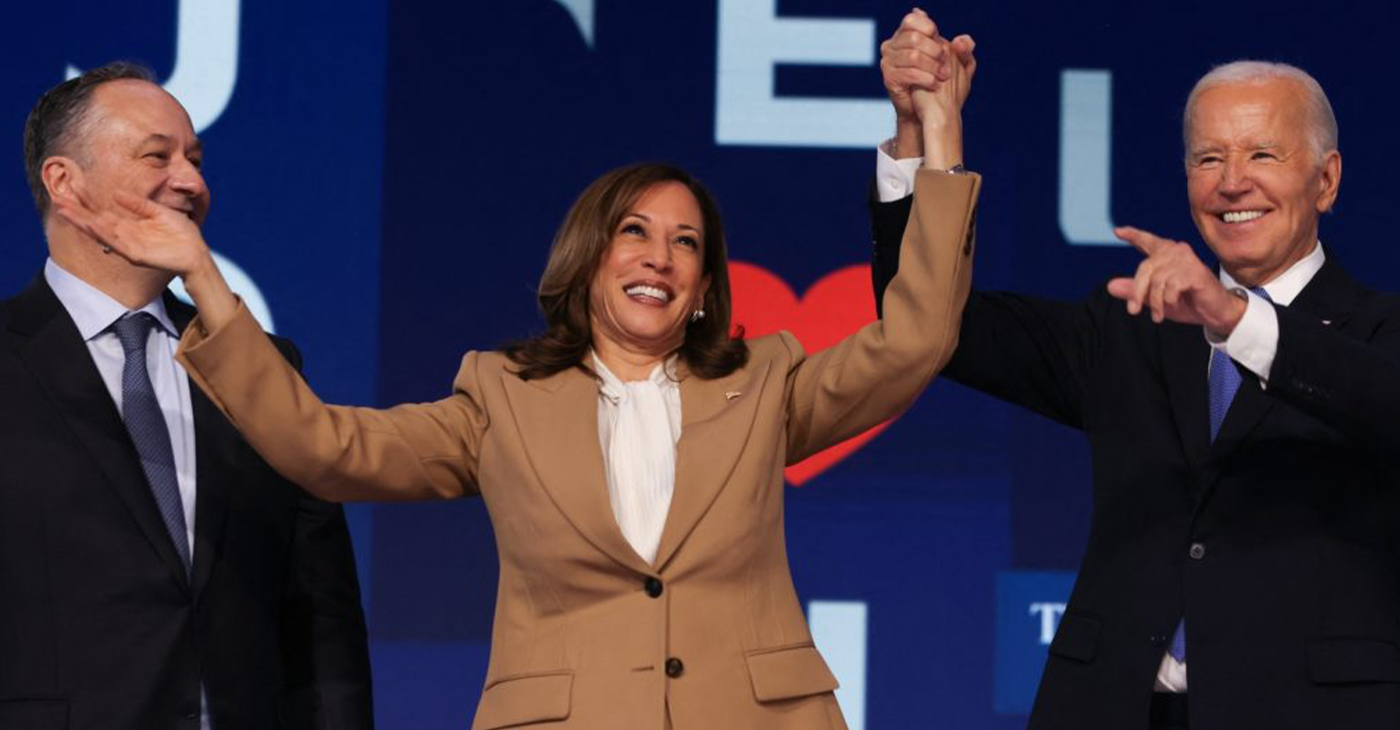
By Emil Guillermo
“This is going to be a great week,” Vice President Kamala Harris declared in an unexpected early appearance that brought down the house on day one of the Democratic National Convention in Chicago.
It was already an emotional night after Jesse Jackson in a wheelchair was brought out in front of the crowd to cheers. The man who ran for president twice in the 80’s behind a rainbow coalition, didn’t speak. But his presence was all that was needed to let us know how far we’ve come.
Harris, the country’s first Asian and Black woman ever to be vice president, by the end of the week would become the first woman to be nominated as the standard bearer for the Democratic Party.
But she knew she had to honor the man who made it possible. Jackson? No, Joe Biden.
“I want to kick us off by celebrating our incredible President Joe Biden,” said Harris, who thanked the president for his leadership and lifetime of service, which includes stepping aside more than four weeks ago.
But first, Harris looked at the diverse crowd and promised them that “this November, we will come together and declare with one voice, as one people, we are moving forward with optimism, hope and faith so guided by our love of country, knowing we have so much more in common than what separates us.”
It was a mini “anti-politics of division” speech, policy be damned, give me joyful rhetoric. It set the tone for the huge convention crowd that responded with the kind of energy we haven’t seen since the Obama years.
And then we waited more than two hours for the Democrats to send out Joe Biden.
BIDEN’S FAREWELL
Was this some left-handed honor?
If political conventions are really TV shows, Joe Biden didn’t even make prime time on his own night. On the west coast maybe, but in the east, he was on after the late news.
It’s the way the last five weeks have gone for Biden, wrestling with the notion he’s past his prime.
Or maybe the lateness was intentional to show everyone, all his detractors, the ones who deftly pushed him to the side, that a Joe Biden “in full” could still go nearly 50 minutes at the top of his game.
After an emotional introduction from his daughter Ashley (“He’s still my best friend,” she said), Biden was wide awake for this moment, setting the record straight about what he’s done and what he’s yet to do.
He saved his ire for Donald Trump, the man who, as Biden said, promised infrastructure, but “never built a damn thing.”
Maybe his own ego?
And all while being the man who would destroy our nation.
“He’ll be a dictator on day one, his words,” Biden said with zeal. “This sucker means it.”
It was an energized Biden, who had a few stumbles, but no one cared. He laughed it off. We all did, unlike the last few months when each word was scrutinized through an ageist filter.
But here he was more than functional and powerful, and about to let it all go.
I’m sure it made some people wonder that if this Biden had appeared at that June 27 debate, we’d be having a totally different convention this week.
“I made a lot of mistakes in my career, but I gave my best to you for 50 years,” Biden confessed. He recollected how he was too young to be in the Senate because he wasn’t 30 yet, but now he was “too old to stay as president.”
That got a little laugh.
“But I hope you know how grateful I am to all of you,” Biden said. “I can honestly say, I’m more optimistic about the future than I was when I was elected as a 29-year-old United States Senator.”
And with that, he made peace with his destiny.
Biden went from being “the” guy, to “the guy who kept the presidential door ajar,” so that Kamala Harris, the first Black and South Asian woman, could go forward and through.
About the Author
Emil Guillermo is a journalist and commentator on race, media, culture, and politics. See his secret podcast on YouTube.com/@emilamok1. Contact: www.amok.com
-

 Bay Area4 weeks ago
Bay Area4 weeks agoFormer Black Panther Leader, Elaine Brown, Champions Affordable Housing with New Complex in West Oakland
-

 Alameda County4 weeks ago
Alameda County4 weeks agoD.A. Pamela Price Says Recycling Company Will Face Up to $33 Million in Fines for Oakland Scrap Metal Fire
-

 Activism4 weeks ago
Activism4 weeks agoIN MEMORIAM: Dr. Michael Eric Dyson Eulogizes ‘The Father of Black Studies’ in San Francisco
-
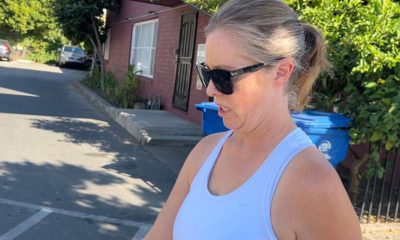
 Alameda County4 weeks ago
Alameda County4 weeks agoD.A. Pamela Price Charges Alameda Swim Team President with Multiple Counts of Embezzlement
-

 Arts and Culture4 weeks ago
Arts and Culture4 weeks agoTriumphant Return of Oakland Native Richard Curtis IV: Inspiring the Next Generation on Missy Elliott’s ‘Out of This World’ Tour
-

 Alameda County4 weeks ago
Alameda County4 weeks agoOakland Narrowly Avoids Major Budget Cuts With Newly Signed Deal For Coliseum Sale
-
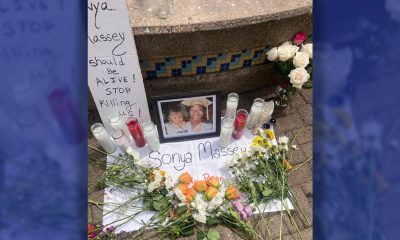
 Community4 weeks ago
Community4 weeks agoOakland Rallies for Sonya Massey, Police Slaying Victim
-

 California Black Media4 weeks ago
California Black Media4 weeks agoSen. Bradford Responds to Deputy-Involved Killing of Unarmed Black Woman








